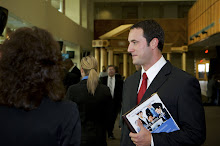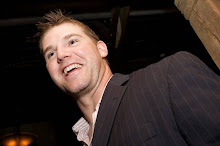
Inflated academic credentials in the nation's executive suites may be more common than generally thought.
A survey of 358 senior executives and directors at 53 publicly traded companies has turned up at least seven instances of claims that individuals had academic degrees they don't have. In some cases, the slip-ups don't appear to have been intentional, and may have been caused by misunderstandings.
Misstatements have cost top corporate officials or directors their jobs in the past few years at companies including retailer RadioShack Corp., vitamin maker Herbalife Ltd. and Usana Health Sciences Inc. The discrepancies at the latter two companies were unearthed by corporate sleuth and sometimes short- seller Barry Minkow.
Mr. Minkow also conducted the latest survey, which doesn't profess to be a scientifically valid sampling of corporate America. Mr. Minkow examined only certain companies or industries he already suspected of being prone to hype.
But the misrepresentations he uncovered may be enough to raise investor concerns about executive credibility as well as company procedures for vetting key management and board members and compiling their official biographies.
At the companies concerned, "You have to ask yourself, as any good investigator would say, what else might be there?" says Mr. Minkow, who heads the San Diego-based Fraud Discovery Institute. Mr. Minkow, who served prison time for the ZZZZ Best stock swindle in the 1980s, has won kudos from the FBI since his release for his role in uncovering frauds on the Internet, in the real-estate field and elsewhere.
After choosing the companies to survey, Mr. Minkow says he cross-checked their top officials' biographies -- usually included in filings with the Securities and Exchange Commission -- against a database of college degrees open to private investigators.
The Wall Street Journal confirmed each case of an inaccurate degree claim with the university involved.
Mr. Minkow says he doesn't have any investment position in the companies where he found problematic credentials, but one of his employees has bought put options betting against some of their stocks.
One of the discrepancies Mr. Minkow turned up in SEC filings involves Mr. Workman, Trimble's chief technical officer. According to his biography in the Sunnyvale, Calif., company's annual report, Mr. Workman holds a master's degree in electrical engineering from the Massachusetts Institute of Technology. M.I.T. says Mr. Workman attended the school, studying physics for two semesters, but never earned a degree.
A spokeswoman for Trimble, LeaAnn McNabb, says Mr. Workman thought he had received a master's degree when he left M.I.T.'s doctoral program in the late 1960s.
"The professor gave his assurance to Dennis that he would submit the necessary paperwork," Ms. McNabb says. "Dennis is working with M.I.T. to work out the situation." She declined to comment on whether Trimble had previously checked Mr. Workman's credentials or would update its annual report.
"I don't remember receiving the degree," Mr. Workman said in an interview. "It's my position that I earned it, that's for sure. I'm unequivocal about that." Mr. Workman says he had planned to earn a Ph.D., but had to leave school because of the Vietnam War.
"It was either leave the country, get drafted, or find a job with a critical-skills deferment, which is what I did," he says.
A corporate biography claimed Mr. DeHoniesto, the Cabot Microelectronics chief information officer, had a bachelor's degree in computer science from the University of Pittsburgh. Although he did attend Pitt's school of engineering in the 1980s, the senior manager didn't earn a degree, the school says.
After Cabot received inquiries from the Journal about the matter Wednesday, Mr. DeHoniesto announced his resignation from the Aurora, Ill., company. He couldn't be reached for comment.
A biography of Sam Box, until recently the president of Tetra Tech Inc., appears repeatedly in the company's SEC filings identifying him as the holder of a bachelor's degree in civil engineering from the University of California. After receiving inquiries from the Journal last month prompted by Mr. Minkow's work, the Pasadena, Calif. environmental-engineering company said Mr. Box "admitted that he does not have a college degree," and that it would demote him to vice president.
A spokesman for Tetra Tech, Michael Bieber, says Mr. Box came to Tetra Tech after it acquired his past employer, and Mr. Box's academic credentials weren't verified at the time. "It was a loophole in our system," Mr. Bieber says, adding that the company had tightened its process in response.
Tetra Tech declined to make Mr. Box available for comment.
Maurice Schweitzer, who studies business ethics at the University of Pennsylvania's Wharton School, urges companies to take a hard line on misrepresented academic credentials "If you say, 'Look, the CEO has been doing a great job, we otherwise have no complaints about this person, so we're going to let it go,' my concern is that you're sending a message throughout the organization that you don't want to be sending," he says.
"I'm very concerned that if people believe you can lie and get away with it, then down the line people will start cheating on their expense reports, they'll start misrepresenting their billable hours, they'll start misusing their corporate funds," Mr. Schweitzer adds.
Further down the corporate pecking order, inflated credentials are fairly common, according to Jenifer DeLoach, who supervises background checks for corporate clients at Kroll Inc., the investigative arm of Marsh & McLennan Cos.
Kroll issues an annual report of its "hit ratio" that says about 20% of job seekers and rank-and-file employees undergoing background checks by their companies are found to have inflated their educational credentials. Those seeking jobs usually get turned down when discrepancies appear, Ms. DeLoach says.
But as executives climb the ladder and vie for posts at different companies, they are vetted by search firms and director-level search committees that often conduct extensive background checks.
Others with degree discrepancies discovered by Mr. Minkow in SEC filings and verified by the Journal with the applicable schools include:
Robert Lazarowitz, a director of Knight Capital Group Inc. The New Jersey brokerage firm had said Mr. Lazarowitz earned a bachelor's degree in accounting from the University of South Florida. The school says Mr. Lazarowitz attended USF for only two semesters -- in 1975 and 1976 -- and never earned a degree.
In a statement, Mr. Lazarowitz said, "I regret and take full responsibility for this mistake." Knight Capital says it will take "appropriate steps to update our corporate materials."
Owen Kratz, the chief executive of Texas-based Helix Energy Solutions Group Inc. A corporate biography of Mr. Kratz claims he has a bachelor's degree in biology and chemistry from the State University of New York at Stony Brook. Not so, says Stony Brook's registrar's office. Mr. Kratz does have a biology degree from the College at Brockport, a less-prestigious SUNY campus where Mr. Kratz transferred in 1974, according to that school's registrar.
A Helix Energy spokeswoman, Sheralyn Miller, acknowledges the mistake, and calls it "an internal error." She says Mr. Kratz had never claimed a Stony Brook degree, but "our proxy is off a little bit." Ms. Miller says the company will revise its filings.
[CQ]Harold[/CQ] Rafuse, a director of Life Partners Holdings Inc., a Waco, Texas, insurance broker. Life Partners had said Mr. Rafuse held a bachelor's degree in chemical technology from Temple University. But he earned only an associate's degree, not a bachelor's, according to Temple officials.
Life Partners' general counsel, Scott Peden, says the company will correct its disclosure in its next proxy. He says Mr. Rafuse had received what he thought was the "functional equivalent of a bachelor's" degree. The discrepancy isn't "material," Mr. Peden says.
Kenneth Keiser, the president and chief operating officer of PepsiAmericas Inc., one of the country's biggest Pepsi bottlers. Mr. Keiser has been identified for three years in annual reports and proxy statements filed with the SEC by shipping concern C.H. Robinson Worldwide Inc., where he is a director, as having a bachelor of arts degree from Michigan State University. The university says that isn't so. It says Mr. Keiser attended from 1973 to 1976, but never graduated.
A PepsiAmericas spokeswoman, Mary Viola, says the company was aware Mr. Keiser stopped attending college "10 or 20 hours short of a degree." She says C.H. Robinson had mistakenly imputed a bachelor's degree to Mr. Keiser in its past several proxy statements.
"I'm sure [Mr. Keiser] does read their proxy, but he doesn't read his own bio," Ms. Viola says. "It's unfortunate that a communication error of another company is drawing attention to this for Ken."
Angie Freeman, a spokeswoman for C.H. Robinson, says her company was responsible for the error and had "mistakenly assumed that he earned a degree." But Ms. Freeman says she believes Mr. Keiser signed off on his own mistaken biography.
"The company did periodically provide the materials for him to review," she says, in the process of preparing its 2006, 2007 and 2008 proxy statements -- all of which included the erroneous degree.
Write to Keith J. Winstein at keith.winstein@wsj.com




1 comment:
http://www.trimble.com/news/release.aspx?id=092999a
The bio remains unchanged on Workman today.
Tammy Swofford
Post a Comment